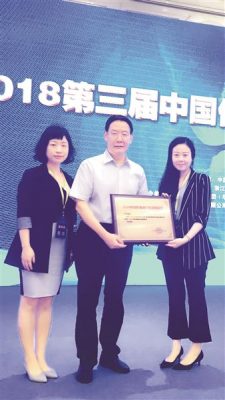As Vladimir Putin arrived in Beijing today for talks with Xi Jinping, the Global Times had to note that the relationship between China and Russia “has innovative significance for major power relations.” Read the headlines in China these days and “innovation” is everywhere. In whatever arena a question arises — technology, economics, politics, media, culture — the answer seems to be innovation.
Sure, innovation is a global buzzword. Benoit Godin, an expert on the history of innovation as a concept, has written that the term “is used and abused and has come to mean everything and nothing.” In China, though, under the rule of Xi Jinping, the term has become all-encompassing — the political, economic, technological, cultural and ideological fulcrum on which the legitimacy of the Party turns.
When Xi gave his speech at the Boao Forum last April, an opportunity to press his vision for the global economy, it was called “Openness for Greater Prosperity, Innovation for a Better Future.” The speech had to be understood in a Chinese context as a transformation (an innovation, if you will) of the vision set by Deng Xiaoping. If Deng was the great reformer, Xi Jinping is the great innovator. Xi’s vision, moreover, is global in scope, making him, at least in the Chinese Communist Party’s formulation, someone whose standard we should all follow. “Reform and innovation,” Xi said in his Boao speech, “are the fundamental driving force of human progress.”
When a concept takes hold at the commanding heights of political power in China, one can expect it to seize every crack and valley as well.
This is something we should remember as we observe the way “innovation” has taken hold in the arena of media and propaganda. At times, the word can actually point in a roundabout way to some form of change, including the new (if not exactly creative) application of technology. But very often, it does not. Very often, it is mere repetition, and as such is meant to confer power on the political idea and the political person, rather than signal or advocate real transformation.
Take, for example, a piece today written by a local propaganda chief from Baoji, a small city in China’s west, relating the results of a fact-finding mission to larger coastal cities in which leaders from Baoji sought to ascertain how they might get their city noticed. The answer:
We must ‘go out’ and strengthen our exchanges with more areas, drawing support from our cultural strengths, innovating our methods and styles, telling Baoji’s story in a lively way, doing high frequency publicity of Baoji, turning Baoji’s influence into Baoji’s competitiveness.
When the propaganda chief boils these concepts down to specific methods, however, they are underwhelming. If the voice of Baoji is to “actively go out,” resulting in “stronger public opinion power,” then the city must “strengthen the role of the internet,” the most effective way (can you feel it coming?) to “steadily innovate the channels and methods of communication.”

Yesterday, the Chinese Newspaper Association held the award ceremony for its 3rd annual Chinese Media Innovation Summit Hangzhou (中国传媒创新杭州峰会). The list of award winners reads like a portrait of traditional Party-run newspapers making the shift to more fully multimedia organizations that operate across online platforms.
In China’s media landscape, one of the most important meanings of “innovation” over the past three years has been the transformation of the Party press system through the application of new internet tools, and restructuring within Party-run media organizations to allow for cross-production of content.
For its “Central Kitchen” (中央厨房) project — which integrates various aspects of content production, including editing, design and technology, through a dedicated central desk — Guangzhou Daily, the official Party mouthpiece of the Guangzhou city leadership, won an award this year. Hunan Daily, the official Party mouthpiece of the provincial leadership in Hunan province, won an award for another “convergence” (融合) project called the “New Hunan Cloud Platform” (新湖南云), described as a multimedia platform that has “become the chief platform through which the provincial Party committee and provincial government release important policies.”




















